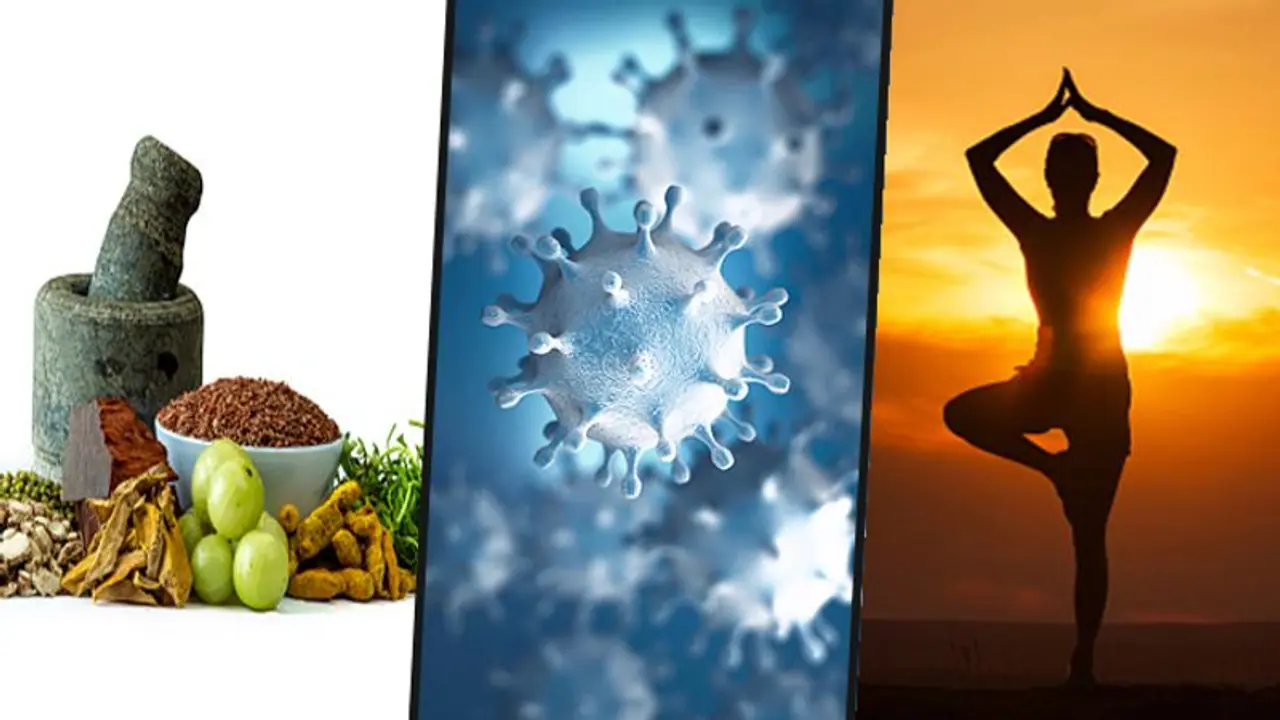India should build a strong institution base for our Indic knowledge and use it as one of its soft-power tools to influence global politics
The world is now dealing with a pandemic. The novel coronavirus whose official name is COVID-19 has infected around 200,000 people claiming around 8000 lives. This has forced the world to think about preventive measures and immunity building until the time an effective cure is found. Doesn’t this remedy ring a bell? Isn’t this something that our Indic culture has been teaching us since eternity?
India is a reservoir of huge cultural and civilisational knowledge that has impacted the world for thousands of years. We have seen our scriptures, gurus, and yogis addressing dharmic tradition which helps our souls and bodies to unite, along with imparting intellectual, artistic, political and diplomatic knowledge. This new pandemic has forced us to revisit our knowledge once again. One of the main preventive measures that are being advocated by doctors across the world is the washing of hands. Isn’t this something that is taught to us from our childhood? Washing our hands before doing anything, washing our hands and feet after we are outdoors and washing hands immediately before and after meals is ingrained in our culture. It is done to promote the sanctity and hygiene of our homes and now is being promoted to fight this deadly virus. To avoid physical contact, the world is moving away from handshakes to namaste. It is funny to see how a knowledge that was earlier looked down upon and ridiculed has come to the rescue billions at a time when the world is engulfed by an epidemic.
Immunity building is also something that doctors have been stressing on now. It has been proved that herbs such as amla, giloy, shilajit, and neem have powers to strengthen our immunity systems and help us fight against this deadly virus, Many Ayurvedic doctors have suggested that Amalaki or amla (Emblica Officinalis), guduchi/glioy (Tinospora Cordifolia), neem (Azadirachta Indica), kutki (Picrorhiza kurroa), tulsi (basil) are some of the medicinal herbs that can help us build our immune system and will help us fight any infection. The “gharelu nuskas” of our dadis and naanis are coming back to us in the form of preventive measures! People are in fact shifting to these preventive measures rather than gulping down tablets as these have zero side effects. Rather they help the body cope with all diseases naturally through a healthy and safe lifestyle.
Both Ayurveda and Yoga have been India’s greatest source of soft power, yet often under-utilised! While India still struggles to standardise Ayurvedic practices, Hungary has accepted Ayurveda as a part of its Naturopathy curriculum and made it an obligatory part of its curriculum way back in 1997! Our Indic knowledge system is extremely vast, and it includes Indic technology, Vedic Physics, Ayurveda and Yoga. Yoga has in fact been thoroughly validated through randomised control trials conducted by prestigious institutions like Harvard University, MD Anderson in Houston, Texas, and NIMHANS in Bengaluru.
Recently, honourable Member of Parliament Vinay P Sahasrabuddhe in his speech in Parliament on The National Commission for Indian System of Medicine Bill, 2019 and The National Commission for Homoeopathy Bill, 2019 said that the only way our Indian institutions promoting our Indic knowledge can prosper is when we indulge in the process of institution building. A strong network of these institutions should be built so that they all have a shared bank of resources and can support each other. Only when there is a strong community of our own institutions can we venture out to spread this across the globe. A brilliant suggestion given by him to the Ministry of Ayush in this regard was to create a magazine like the Lancet for Ayurveda which will ensure that our knowledge is distributed far and wide.
Ayurveda and yoga have been regarded as two precious gifts by India to our humanity and planet earth. It is one of the most sustainable practices for healthcare which protects the health of our Mother Earth as well. For us to be healthy, we should not just take care of our bodies but also our environment. Ayurveda and Yoga have made people increasingly aware of the same. So, given the importance of these two, it is imperative for India to expand its soft power and its civilisational strength. Not just for our national unity but for gaining a strong foothold in global politics. India has both the power and knowledge to lead the world into a new era of peace and higher consciousness just by delving into its cultural and civilisational strength. But to do that, we need strong political and diplomatic will and development of this should not be neglected. Therefore, I urge the government to take this up and let India lead the worldview with harmony laden in its civilisational values.
About Abhinav Khare
Abhinav Khare is the CEO of Asianet News Network and also the host of a daily show named Deep Dive with AK. He has a lifetime collection of books and gadgets and has already pinged more than hundred cities around the globe.
He is a tech entrepreneur, who is passionate about policy, technology, economy and philosophy from ancient India. He earned an MS Engineering from the ETH Zurich and an MBA Finance from the London Business School.
